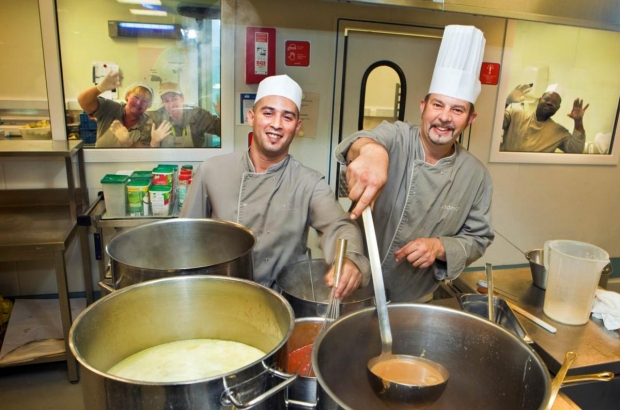- Daily & Weekly newsletters
- Buy & download The Bulletin
- Comment on our articles
Good Food Brussels puts the focus on local and sustainable
Sustainability isn’t just a buzz word these days. More and more businesses – and consumers – are becoming aware of the cost of our environmental impact. Now the Brussels-Capital Region has come up with its own strategy for a more sustainable system of food consumption and production.
By rethinking the food chain, Good Food Brussels aims to reduce waste and increase the amount of food grown locally. “We’ve been working on a food strategy for several years now,” says Joséphine Henrion from Leefmilieu Brussel, the region’s environmental agency, which oversees the programme. “There are already many initiatives in schools and staff cafeterias to make food consumption more sustainable. At one point, we felt the need to create a more-widespread approach that involves other institutions in Brussels and covers the entire food chain.”
Good Food Brussels will run for five years and centres around nutrition. It is tailored to Brussels’ specific dynamics and is supported by multiple government institutions and social groups. It also provides a platform to connect existing initiatives, increasing their visibility and inspiring others to take part.
Sustainability has become the touchstone of our times. It concerns many aspects of our daily lives, so the decision to focus on food, Henrion says, was all too obvious. “The way we produce and consume food has a huge impact on the environment. A staggering 30% of our personal impact on the environment comes from what and how we eat.”
Existing projects
At the same time, she continues, there are numerous initiatives and actors who are already involved in making the food chain more ecological. “There is a clear desire among the public to do something about it,” she says.
One of Good Food Brussels’ primary objectives is to increase awareness about what is already there. “Many people are growing their own food or setting up communal gardens, but do not know what is going on in the rest of Brussels,” Henrion says. “With our platform, we want to forge links between the different projects and encourage more people to participate.”
Although food production comes at a great environmental strain, a lot of what we don’t consume goes to waste. So it is logical, Henrion says, that combating food waste is high on the programme’s agenda. “Our priority is to involve more of Brussels’ residents. We want to set up initiatives that significantly reduce how much of the food goes to waste.”
One project already in place is called Restorestjes, a re-think of the doggy bag. These are special cardboard boxes that Leefmilieu makes available to restaurants so customers can take their leftovers home. The boxes, Henrion says, have proven to be a huge success. “More and more restaurants are asking for them.”
The agency is also reaching out to distributors and hopes to find ways to reduce waste in the distribution stage and recover what is lost. “We need to think of better ways of connecting supermarkets with food banks, for example.”
City, no problem
As it aims to reduce food waste, Good Food is also promoting local production. Its targets are ambitious. In time, Henrion envisions that as much as 35% of food consumed in Brussels could be produced locally. She says that the goal is very realistic, even for such a densely urbanised area.
Last year, the agency commissioned a study to find out if it is possible to increase local production of food. “The study showed that Brussels and its surrounding region have great potential,” Henrion says, with more than enough resources to reach the target.
Examples from other cities also show that it is possible to grow fruits and vegetables in an urban setting, and even breed chickens. “These things can happen in Brussels,” she says.
The programme will also map out strategies for better use of available plots in the capital. The agency plans to focus on both professional food growers and enthusiasts. “We also want to persuade consumers to buy more locally produced food,” says Henrion.
Localised food chains not only benefits the environment, it also leads to job creation, an important argument in a region like Brussels, which is plagued by high unemployment. “Sustainable food production presents plenty of employment opportunities,” says Henrion. “And that is something we want to work hard on. Another study we commissioned shows that the number of additional jobs would be significant. So while it is an ambitious plan, we are going for it.”
Photo courtesy Good Food Brussels









